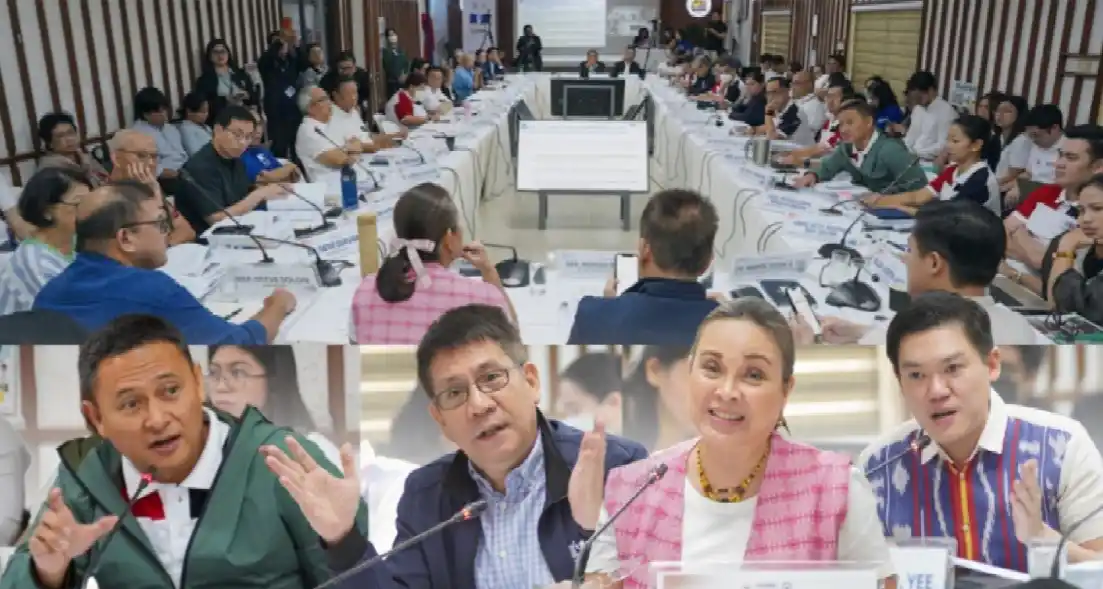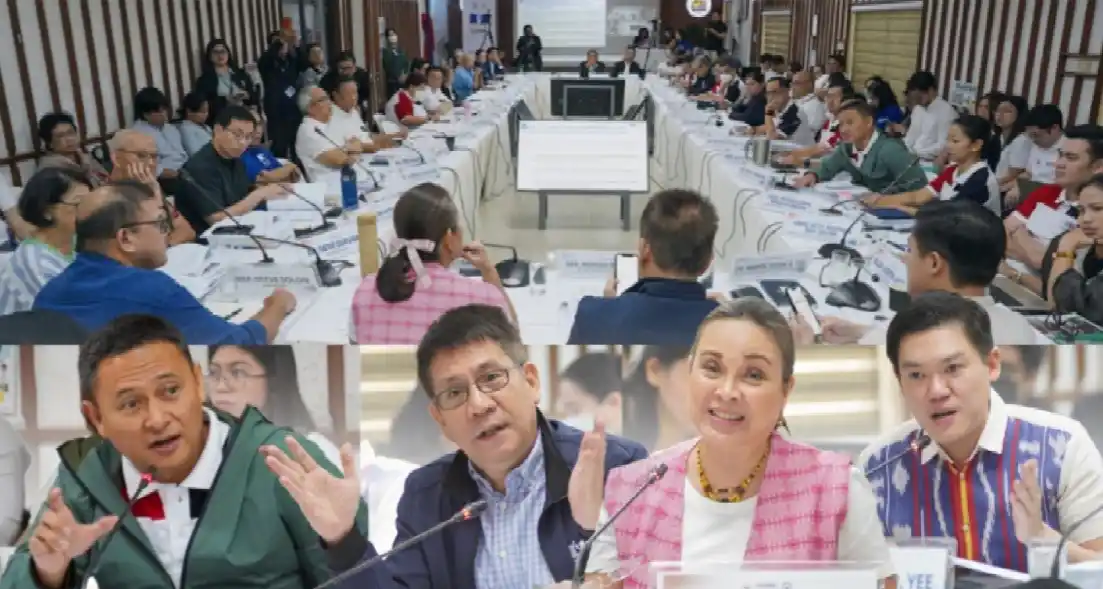DepEd faces EDCOM II, pushes long-term reforms under Angara’s leadership

SHARE
Education Secretary Sonny Angara underscored the urgency of strengthening long-term reforms in basic education as the Department of Education (DepEd) faced the Second Congressional Commission on Education (EDCOM II) on Tuesday, emphasizing that these reforms are vital to addressing long-standing gaps that continue to affect learning quality and system performance.
The hearing, held at Nemesio I. Yabut Integrated School, focused on reviewing the DepEd Charter under Republic Act No. 9155, which defines the department’s governance and mandate. EDCOM II’s ongoing review seeks to update education laws to address emerging challenges in policy, resources, and coordination.

“Kailangan natin ng mga pangmatagalang solusyon para ayusin ang sistema ng edukasyon sa bansa,” Angara said. “Our reforms aim to make DepEd more focused, better resourced, and strategically aligned.”
Angara said the department is pursuing priority legislative measures that directly address implementation and financing gaps, including:
- Expansion of the Special Education Fund (SEF) to augment local education resources;
- Expedited issuance of school site titles to unlock infrastructure development;
- New Adopt-A-School provisions to attract greater private sector involvement;
- Teachers in Every Barrio Bill to ensure equitable teacher deployment; and
- Amendments to the Teachers Professionalization Act to support comprehensive human resource reforms.
For broader learner welfare, DepEd is also proposing amendments to the Masustansyang Pagkain para sa Batang Pilipino Act and the Expanded Government Assistance to Students and Teachers in Private Education (E-GASTPE) Law, aimed at improving access to feeding programs, learner subsidies, and transportation support.
These initiatives form part of DepEd’s Quality Basic Education Development Plan (QBEDP) 2025–2035, a 10-year roadmap envisioning a high-performing, learner-centered, and well-supported education system.
DepEd’s presentation revealed that since 1982, 49 laws have expanded DepEd’s responsibilities, many with specific implementation requirements but without sustained funding. Among the most persistent issues, the report identified unfunded mandates, resource shortfalls, and systemic gaps that fall on DepEd despite requiring cross-sectoral action.
The department also sits in 261 interagency councils, creating coordination burdens that dilute focus and resources.
“DepEd’s mandate will keep evolving,” Angara said. “But if we strengthen our foundations now—funding, governance, and inter-agency alignment—we can finally make the system work for every Filipino learner.”
*All Photos from DepEd
RELATED ARTICLES

Limited Time Deals For SCHMIGADOON, THE LOST BOYS, WICKED & More

The Peninsula Cruise Experience on Star Ferry

Explore the Outlying Islands of Hong Kong at The Peninsula

‘Gift of Fortune’ Chinese New Year Stay Package








